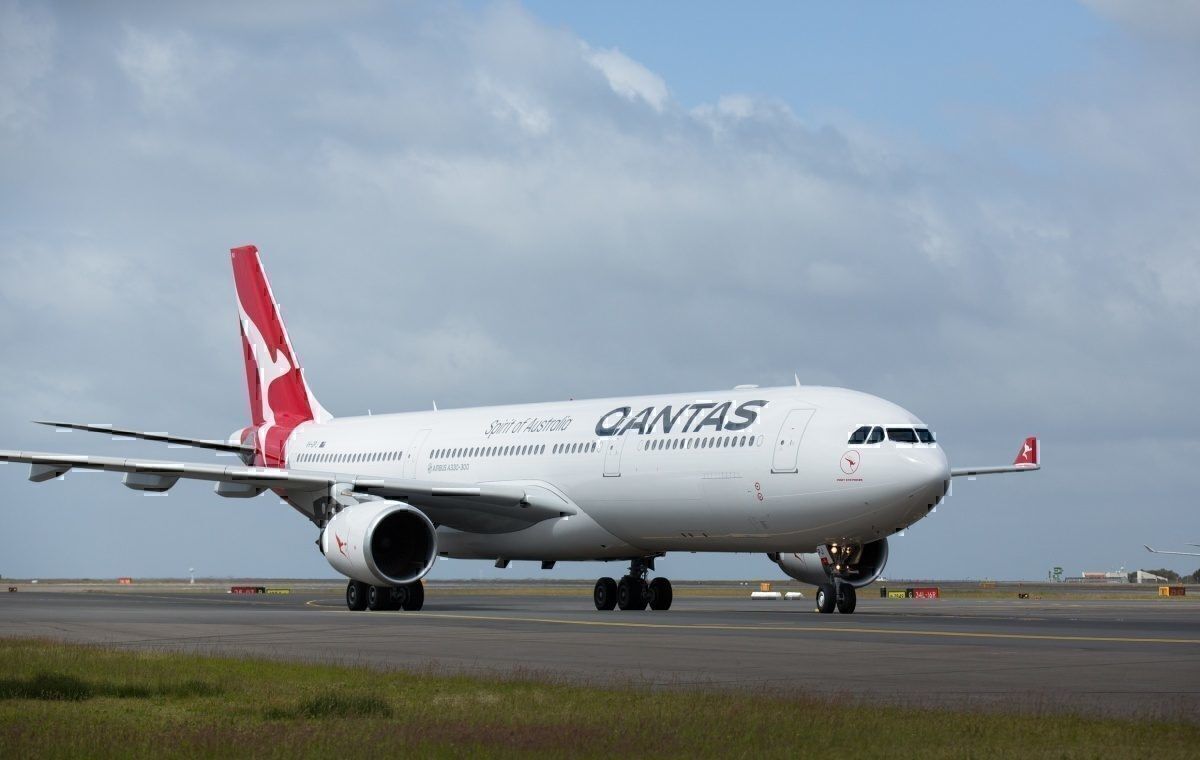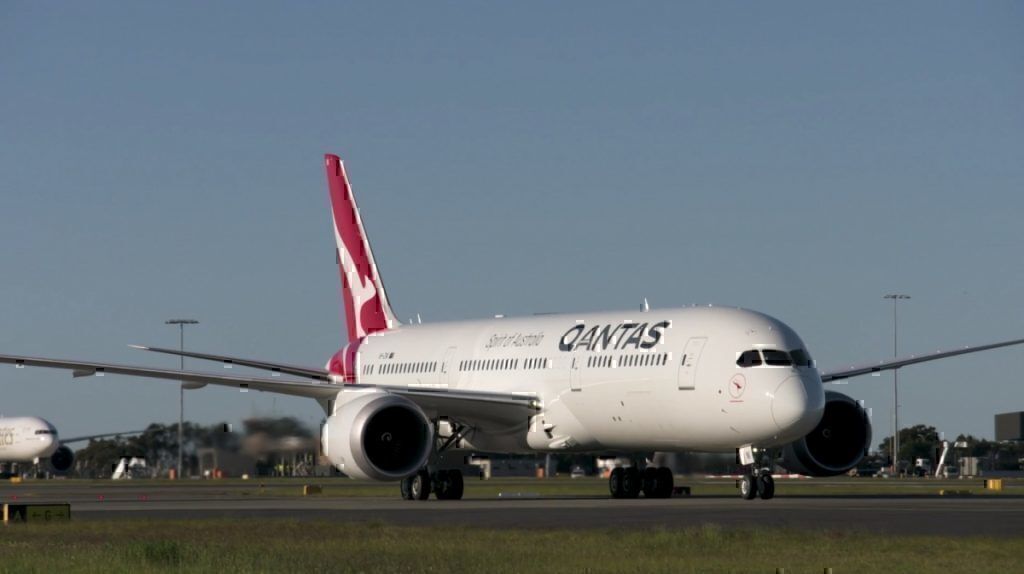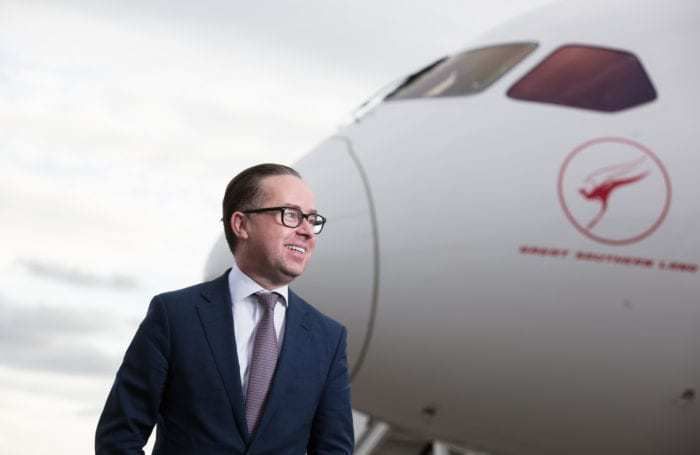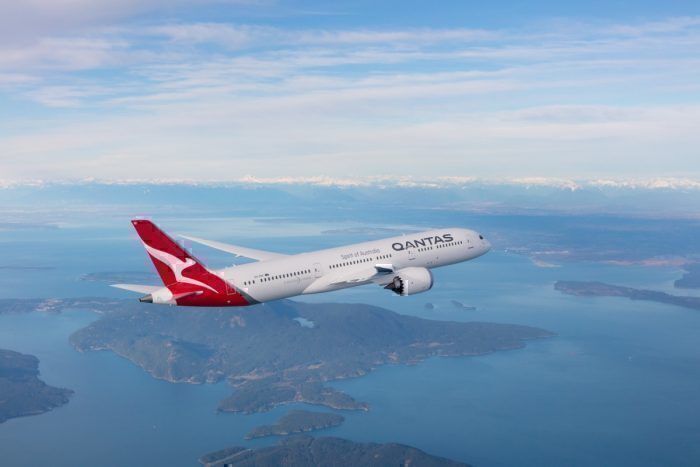Despite sustained criticism from some quarters, Qantas has long carried deportees out of Australia. The issue has received fresh scrutiny following Qantas’ annual general meeting last week in Adelaide. But the Qantas board seems comfortable with its current position on the matter.
As reported in Australian Aviation, the Australian Centre for Corporate Responsibility put two resolutions to last week’s AGM concerning deportations. They wanted a review of Qantas' policies and procedures concerning deportations. The resolutions didn’t pass, but some 24% of shareholders voted in favor of it, nearly four times the support a similar resolution got at the 2018 Qantas AGM.
The impasse comes at a time when airlines elsewhere are starting to take a look at their role in carrying deportees. Virgin Atlantic will no longer carry them. Some US airlines refuse to be involved in deportations of children separated from their families. Others, like British Airways, face ongoing criticism for continuing to carry deportees.
A tough deportation regime
Australia has some of the toughest deportation policies in the western world with people regularly kicked out for having failed character tests, overstaying visas, and not been found to be valid refugees. It is the last group that is arguably the most contentious.
Simple Flying contacted Australia's Border Force (ABF) to find out how many people get deported from Australia. ABF said 5,496 noncitizens were removed in the 12 months to 30 June 2019. They noted that in the vast majority of cases (97%), deportees agreed to the deportation.
SBS News has previously reported that Home Affairs spent AUD$3 million on commercial flights to move detainees in 2018. Today, a spokesperson for the ABF told Simple Flying;
"The ABF uses commercial flights to carry out removals of non-citizens where safe to do so to minimise the cost to the Australian taxpayer. On very few occasions, due to certain circumstances, charter flights may be utilised to ensure the safety of all parties, and to minimise potential disruption to commercial carriers.
"Individuals removed by the ABF include serious criminal offenders, individuals who have deliberately overstayed their visas or breached their visa conditions, or individuals who have been found not to have met Australia’s protection obligations."
The debate surrounding deportees is not over the need for them. Clearly, every country has the right to say who stays and who goes. And for a variety of reasons, some people do need to go. But there is some disquiet over a perceived slapdash process when dealing with refugee applications and a propensity by Australian government officials to say no rather than yes. It is Qantas’ carriage of these people that fuels the most community concern.
Qantas CEO and board okay with carrying deportees
Qantas CEO, Alan Joyce, has long said that Qantas will continue to work with Home Affairs to carry deportees. In Adelaide last week, Mr Joyce said people were deported for a variety of reasons. He said;
“Is Qantas ever going to be in a position to have more information than the government or the courts do on each of these individual cases and have a judgement call? We won’t. We can’t.
The dilemma you get into – and we’ve done the risk assessment on ourselves and we do risk assessment very well on a whole range of other items – we did it on this one and the risk that we have of actually stopping any transportation here creates other risks for the organisation.”
Mr Joyce raises an interesting point here. What other risks? Given the smallish amount of money Qantas makes flying out deportees, forsaking the business carries minimal financial impact.
Reputational risk and accusations of hypocrisy
The risk Qantas faces is reputational. Few people like the messy business of forcible deportations, particularly those involving failed refugee applications and certainly when there are children involved.
And what does raise people’s eyebrows is the selective campaigning by Qantas for certain human rights issues (such as gay marriage) while it seems happy to disregard the human rights breaches inherent in many forcible deportations. Says the Australian Centre for Corporate Responsibility’s Brynn O'Brien;
A company is either for human rights or it is not. There is no halfway position here. For Qantas’s leadership to be in favour of human rights on some issues, and facilitating human rights abuses on others stinks of hypocrisy and, over the medium term, won’t be tolerated by their customers and their investors."
It sure is an interesting issue. While deportations can be necessary, they are a nasty, unpleasant business. For an airline that is so particular about its image, Qantas seems to have a blind spot here pertaining to its involvement. And while Mr Joyce remains at the airline’s helm, it doesn’t look like Qantas’ position will change.
Simple Flying approached Qantas for comment. They referred us to comments made by Alan Joyce and Qantas Chairman, Richard Goyder, on the subject at last week's AGM.




